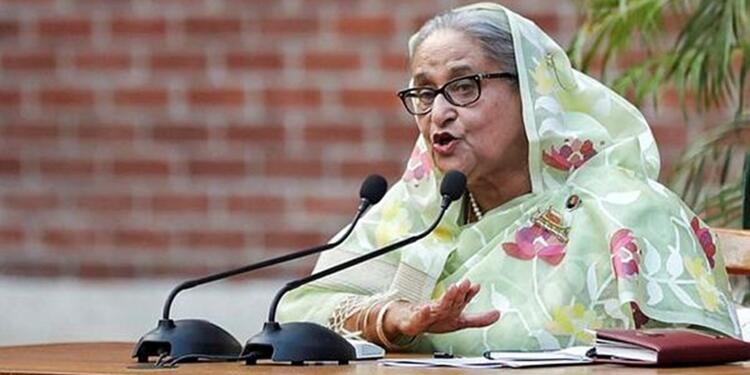Bangladesh recently faced five days of intense violence, leading to over 100 deaths, mostly students. The nation now experiences an uneasy calm, with curfews and armed forces patrolling major cities. Despite the quiet, tensions remain high as the hasina government hasn’t addressed the eight demands put forth by protesting students.
Hasina’s Government Responds
The government has started fixing damaged internet infrastructure and is slowly lifting curfews. However, the country’s return to normal life remains uncertain. The hasina administration faces growing pressure to address protesters’ concerns while keeping order.
Economic Impact of the Crisis
The recent turmoil has severely hurt Bangladesh’s economy. Experts estimate losses over $1.3 billion due to the nationwide shutdown and communications blackout. Key sectors have been hit hard:
1. Hasina’s Garment Industry Woes
The readymade garment sector, responsible for 80% of Bangladesh’s exports, is losing about $150 million daily.
2. Steel and Manufacturing Setbacks
Steel manufacturers report daily losses of around $110 million since businesses closed.
3. Tech and E-commerce Disruptions
The IT services sector faces $3 million in daily losses, while e-commerce revenues have dropped by $5 million per day.
Long-term Economic Consequences
The hasina government faces big challenges in recovering from these setbacks:
1. Inflation and Foreign Reserves
Economic losses will likely increase inflation and reduce foreign currency reserves, further destabilizing the economy.
2. Export Challenges
Exporters may struggle to regain trust from international buyers due to missed deliveries, potentially hurting earnings for years.
3. Job Insecurity
A drop in export earnings could lead to widespread job cuts, worsening existing social and economic tensions.
Hasina’s Political Balancing Act
The government must navigate a complex political situation:
1. Addressing Student Demands
Some student demands, like ministerial resignations and bans on political student groups, pose significant challenges for the hasina administration.
2. Opposition Influence
There are worries that opposition parties may be using student anger to destabilize the government.
3. Authoritarianism vs. Dissent
The hasina government’s tendency to respond harshly to dissent may further increase tensions if economic conditions worsen.
Uncertain Future for Bangladesh
As Bangladesh deals with these connected challenges, the way forward remains unclear. The hasina administration must balance economic recovery, political stability, and social harmony to prevent a potential downward spiral. The coming weeks and months will be crucial in determining whether Bangladesh can overcome this crisis and grow stronger.
Hasina’s Economic Recovery Efforts
The hasina government has begun taking steps to address the economic fallout:
1. Meeting with Industry Leaders
Prime Minister Sheikh Hasina met with business leaders to discuss reopening industries and ensuring security for key transportation routes.
2. Phased Reopening
The government is carefully lifting curfews and allowing businesses to operate for limited hours, aiming to restart economic activity gradually.
3. Infrastructure Protection
Efforts are underway to secure the vital Dhaka-Chittagong highway, crucial for trade and commerce.
Social and Political Tensions
Despite hasina’s efforts to calm the situation, several issues continue to fuel unrest:
1. Anti-Quota Protests
The core issue of job reservations remains unresolved, with students presenting new demands that may be difficult for the government to meet.
2. Political Opposition
The BNP-Jamaat combine is suspected of exploiting student anger to create further chaos and challenge hasina’s authority.
3. Public Dissatisfaction
Rising food and fuel prices, along with high unemployment, have increased public frustration with the hasina government.
International Implications
The crisis in Bangladesh has potential repercussions beyond its borders:
1. Regional Stability
Ongoing unrest could impact the stability of the South Asian region, affecting neighboring countries.
2. Trade Relations
The disruption in Bangladesh’s export-oriented industries may force international buyers to seek alternative suppliers, potentially causing long-term damage to the country’s trade relationships.
3. Foreign Investment
The political and economic uncertainty may deter foreign investors, further hindering Bangladesh’s economic growth prospects.
Conclusion
Bangladesh stands at a critical juncture, with the hasina government facing numerous challenges on multiple fronts. The administration’s ability to address economic concerns, manage political opposition, and meet student demands will be crucial in determining the country’s trajectory. As the situation unfolds, the international community watches closely, hoping for a peaceful resolution that can restore stability and put Bangladesh back on the path to economic growth and social progress.
ALSO READ: President Biden Speech Shocks Nation. Was it really AI Biden?
























